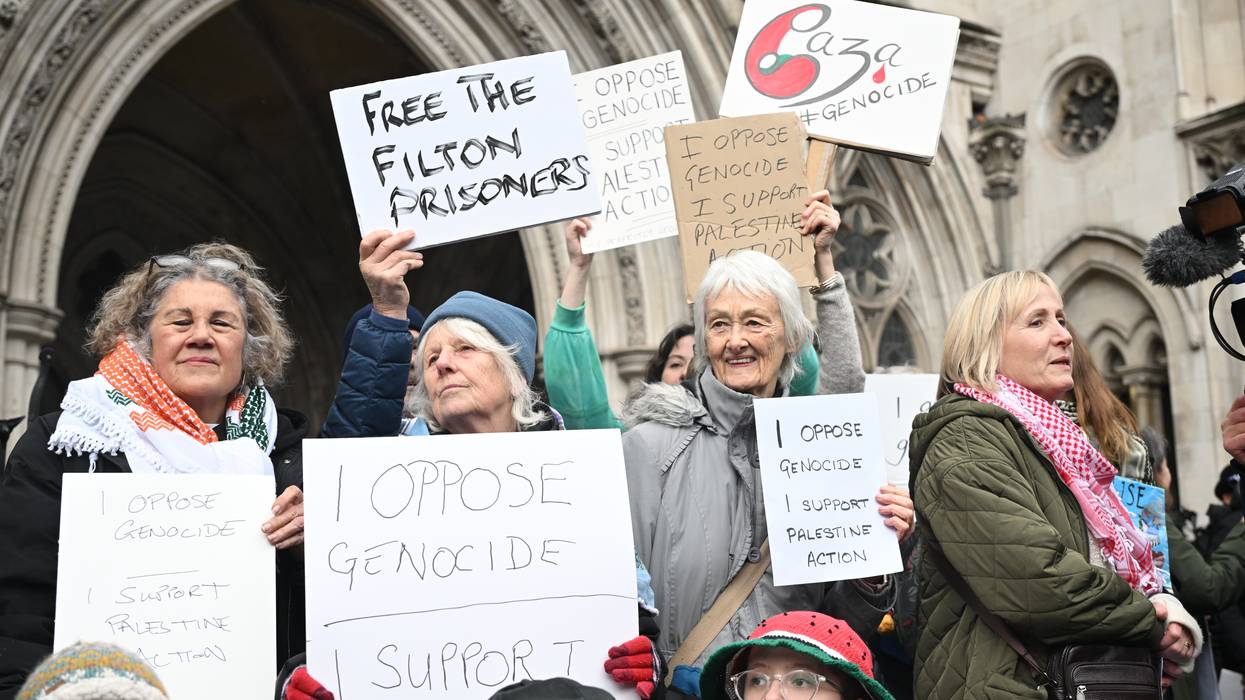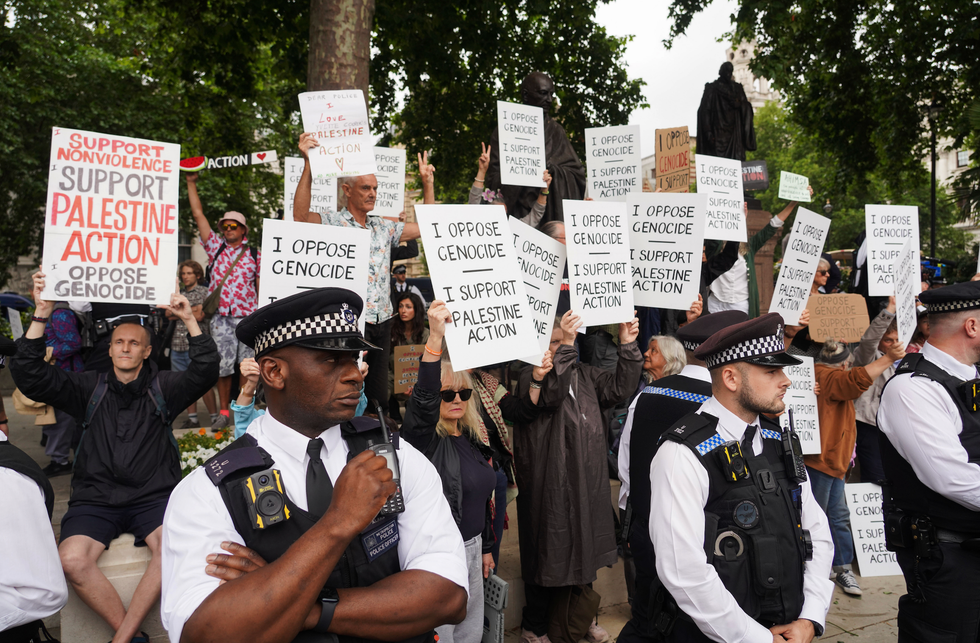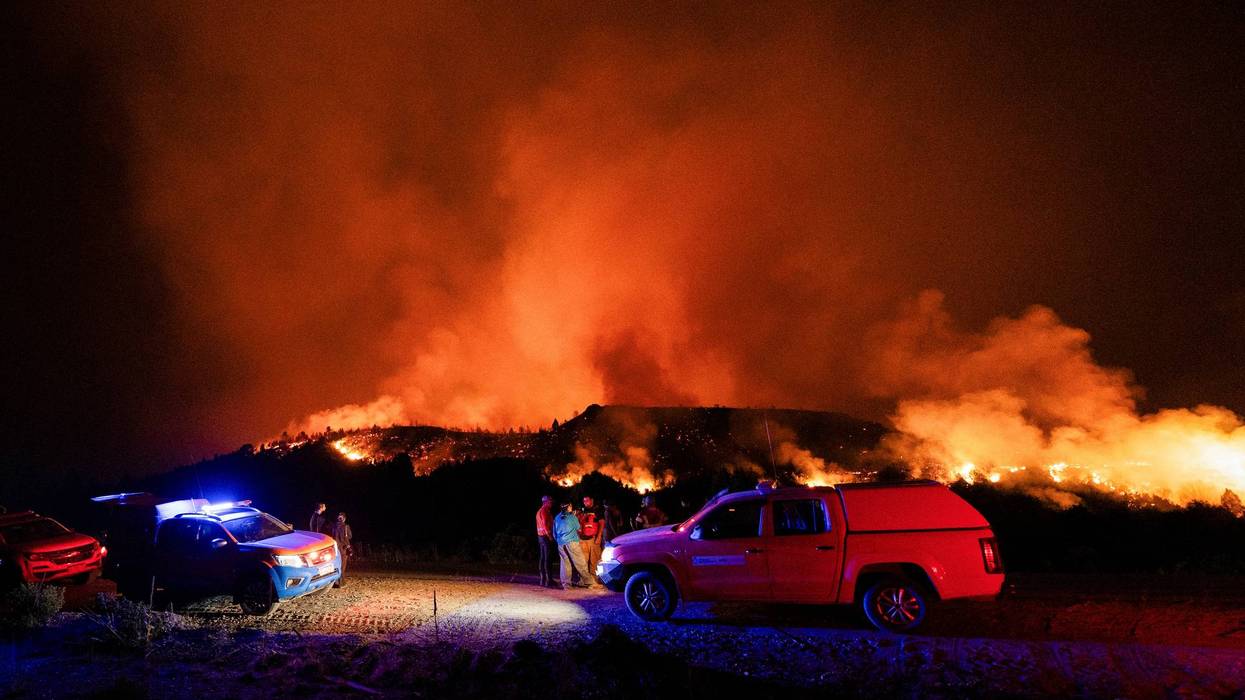"In an effort to mitigate dangerous levels of warming, the Paris Agreement formalized the aim of limiting warming to 1.5°C above preindustrial levels, yet global temperatures have recently breached this limit for 12 consecutive months, coinciding with record-breaking heat, wildfires, floods, and other extremes," the scientists noted Wednesday in the journal One Earth.
They wrote that "crossing critical temperature thresholds may trigger self-reinforcing feedbacks and tipping dynamics that amplify warming and destabilize distant Earth system components. Uncertain tipping thresholds make precaution essential, as crossing them could commit the planet to a hothouse trajectory with long-lasting and potentially irreversible consequences."
A "hothouse trajectory," they wrote, is "a pathway in which self-reinforcing feedbacks push the climate system past a point of no return, committing the planet to substantially higher long-term temperatures, even if emissions are later reduced."
"Sixteen major tipping elements have been identified, 10 of which could add to global temperature if triggered," the experts detailed. "Tipping may already be underway or could occur soon for the Greenland and West Antarctic ice sheets, boreal permafrost, mountain glaciers, and parts of the Amazon rainforest."
As an example, they pointed to ice melt in the Arctic, explaining that the resulting water "could perturb the Atlantic Meridional Overturning Circulation (AMOC), which is already showing signs of weakening. A weakened AMOC could alter global atmospheric circulation, shifting tropical rain belts and drying parts of the Amazon. This cascade of events could trigger large-scale Amazon forest dieback, with major consequences for the region's carbon storage and biodiversity."
The team of eight was led by William Ripple, who has previously emphasized alongside other experts that "we are on the brink of an irreversible climate disaster" and "fossil fuels—and the fossil fuel industry and its enablers—are driving a multitude of interlinked crises that jeopardize the breadth and stability of life on Earth."
Ripple, distinguished professor of ecology at Oregon State University (OSU), said in a Wednesday statement that "after a million years of oscillating between ice ages separated by warmer periods, the Earth's climate stabilized more than 11,000 years ago, enabling agriculture and complex societies."
"We're now moving away from that stability and could be entering a period of unprecedented climate change," he stressed. "Existing climate mitigation approaches, including scaling up renewable energy and protecting carbon-storing ecosystems, are critical to limit the increase in global temperatures."
Study co-author Christopher Wolf, a former OSU postdoctoral researcher who is now a scientist with Terrestrial Ecosystems Research Associates (TERA), noted that already, "climate model simulations suggest the recent 12-month breach indicates the long-term average temperature increase is at or near 1.5°C."
"It's likely that global temperatures are as warm as, or warmer than, at any point in the last 125,000 years and that climate change is advancing faster than many scientists predicted," he said.
"Policymakers and the public remain largely unaware of the risks posed by what would effectively be a point-of-no-return transition," Wolf added. "And while averting the hothouse trajectory won't be easy, it's much more achievable than trying to backtrack once we're on it."
The team's warnings came in the wake of Big Oil-backed President Donald Trump claiming in a United Nations speech last year that climate change is "the greatest con job ever perpetrated on the world," and ditching dozens of relevant organizations and treaties, including the Paris Agreement.
On Thursday, the Trump administration continued its war on the climate, revoking the "endangerment finding" that allowed the EPA to pass regulations fighting the global emergency—which was forcefully condemned by scientists and activists.
"In case there was any remaining doubt, the truth is very clear: Trump cares nothing for the health and well-being of our communities or our climate," said Erin Doran, senior staff attorney at the advocacy group Food & Water Watch. "He is concerned only with making more money for the billionaire fossil fuel polluters that help to fund his dangerous political agenda."
"The notion that the EPA shouldn't regulate climate emissions is inconsistent with the law, the science, and the realities of the climate crisis," Doran added. "EPA is charged with protecting human health and the environment, yet this rule does neither, benefiting only the fossil fuel industry at our expense. It's absurd, and we'll be fighting back."



 Members of the group Defend Our Juries publicly declare their opposition to Israel's genocidal assault on
Members of the group Defend Our Juries publicly declare their opposition to Israel's genocidal assault on 
